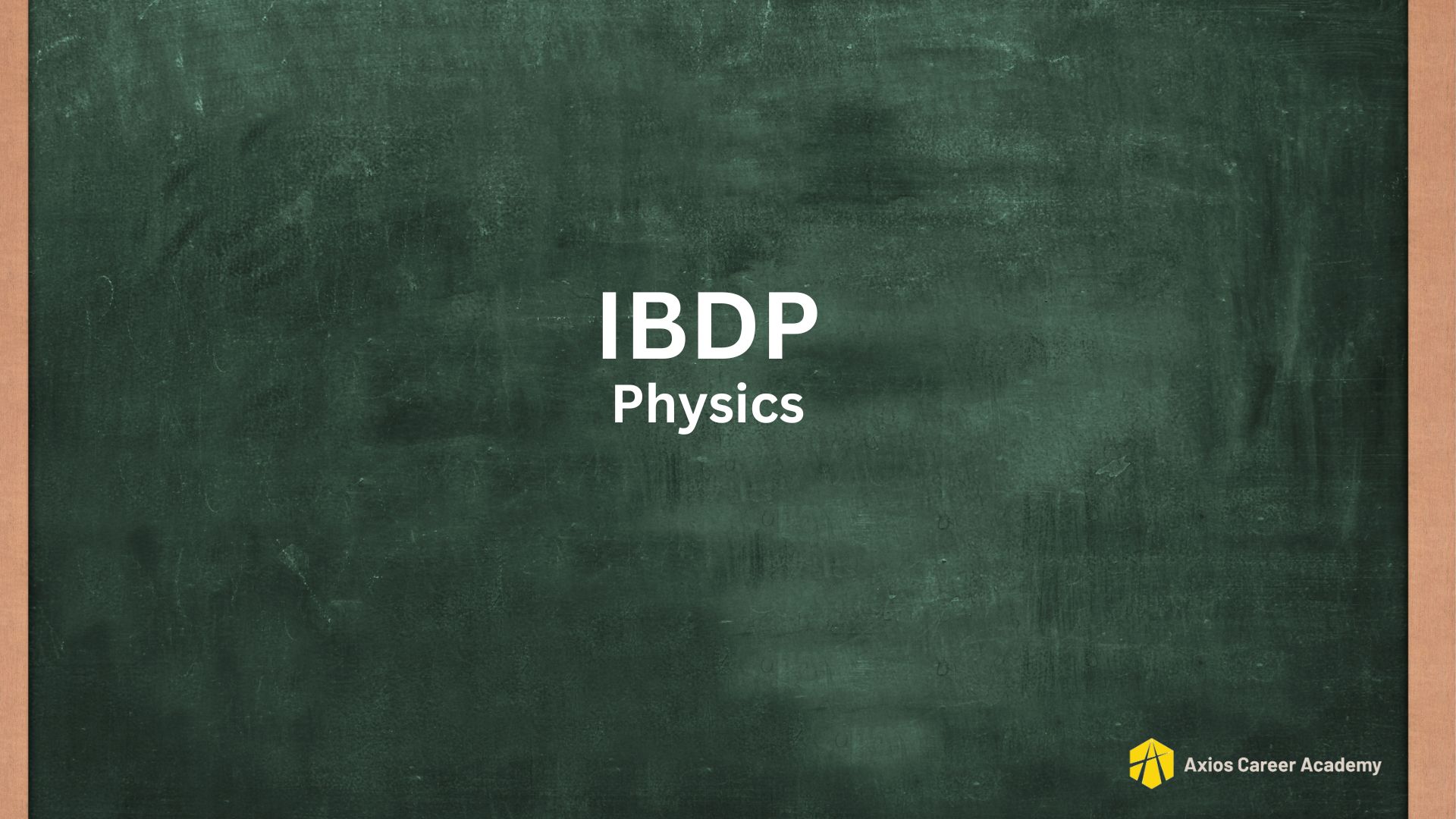Exploring IBDP Physics: Unlocking the Wonders of the Physical World

Introduction:
Physics, the fascinating study of matter, energy, and their interactions, plays a crucial role in our understanding of the universe. In the International Baccalaureate Diploma Programme (IBDP), Physics is offered as a subject, providing students with an opportunity to delve into the mysteries of the physical world and develop a deep appreciation for the scientific principles that govern it.
Differences between HL and SL Physics:
In IBDP, Physics is available at two levels: Higher Level (HL) and Standard Level (SL). While both levels cover core topics in Physics, HL delves into greater depth and complexity, preparing students for more advanced study in physics or related fields. HL students explore additional topics such as advanced mechanics, electromagnetic induction, quantum and nuclear physics, while SL students focus on fundamental concepts and applications.
Assessment Pattern:
|
Assessment |
Standard Level (SL) |
Higher Level (HL) |
||||
|
External |
Duration |
Marks |
Weightage |
Duration |
Marks |
Weightage |
|
Paper 1A Multiple choice based questions |
1 hour 30 minutes (total for both parts) |
40 |
36% |
2 hours (total for both parts) |
40 |
36% |
|
Paper 1B Data based questions |
20 |
20 |
||||
|
Paper 2 Short answer based and extended response based questions |
1 hour 30 minutes |
90 |
44% |
2 hour 30 minutes |
90 |
44% |
|
Internal Assessments (IA) Scientific investigation |
10 hours of class time and 3000 words |
24 |
20% |
10 hours of class time and 3000 words |
24 |
20%
|
1. Engineering: Engineering disciplines such as mechanical, civil, electrical, and aerospace often require a strong background in Physics. Understanding concepts like mechanics, thermodynamics, and electromagnetism are crucial for engineering students.
2. Astrophysics and Astronomy: For those fascinated by the mysteries of the cosmos, a background in Physics is essential. IB Physics lays the groundwork for studying astrophysics and astronomy, exploring celestial bodies, space-time, and the nature of the universe.
3. Medicine and Biomedical Sciences: Physics plays a significant role in medical imaging technologies such as X-rays, MRI, and ultrasound. Knowledge of physics principles helps medical professionals understand the functioning and application of these diagnostic tools.
4. Renewable Energy: As the world focuses on sustainable solutions, expertise in Physics is valuable in the field of renewable energy. Understanding concepts like energy conversion, thermodynamics, and solar technologies prepares students to contribute to the development of clean energy solutions.
Why Physics is Important: Physics is vital for several reasons:
1. Understanding the Natural World: Physics helps us understand the fundamental laws and principles that govern the natural world. It enables us to comprehend the behavior of matter, energy, and the forces that shape our universe.
2. Problem Solving and Analytical Thinking: Physics nurtures problem-solving skills, critical thinking, and analytical reasoning. It equips students with the ability to break down complex problems into manageable components and develop logical solutions.
3. Technological Advancements: Physics is the foundation of many technological advancements that have revolutionized our lives, such as electronics, telecommunications, and space exploration. Advancements in these fields rely heavily on an understanding of physics principles.
4. Career Opportunities: Physics opens doors to a wide range of exciting career opportunities, from research and academia to engineering, finance, and technology. A solid foundation in physics provides a strong base for further specialization and growth in various fields.
In conclusion, studying Physics in the IBDP offers students an incredible opportunity to explore the wonders of the physical world. The HL and SL options cater to students with different levels of interest and ambition. The subject not only prepares students for higher education but also equips them with essential





